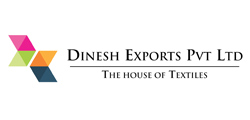The sourcing industry is growing rapidly and presents vast opportunities for companies. It is important for businesses to develop sound sourcing strategies in order to gain a competitive edge in the market.
Sourcing involves the identification and procurement of goods and services needed by a company. It is a critical process that impacts all aspects of business operations. Good sourcing practices can help companies reduce costs, improve efficiency, and gain a competitive advantage.
There are many factors to consider when developing a sourcing strategy. Some of the key considerations include the company’s needs and objectives, the availability of suppliers, the cost of goods and services, and the time required to obtain them.

The sourcing process begins with a needs assessment. This involves determining what goods or services the company needs and developing a plan for acquiring them. Once the needs are identified, the next step is to research potential suppliers. The selection of a supplier should be based on factors such as price, quality, and delivery time. Once a supplier is selected, negotiations take place to finalize the purchase agreement. The last step is to confirm that the goods or services meet the company’s requirements and are delivered according to schedule.
Sourcing can be a complex process, but by following some key guidelines, businesses can develop an effective strategy that meets their needs and objectives.
When sourcing, it is important to consider the following factors:
Purpose
The first step in sourcing is to determine the purpose of the procurement. This will help businesses decide which type of product or service they need to buy.
Budget
Next, businesses should establish a budget for their procurement. This will help them stay within their financial constraints while still finding high-quality products and services.
Scope
The scope of procurement refers to the range of products or services that are being sought. It is important to define this clearly so that suppliers understand what is required and can submit proposals that meet all requirements.
Requirements
Businesses should compile a list of specific requirements for the products or services they are seeking. This will help suppliers understand what is needed and ensure that all needs are met.
Quality
It is important to maintain a high level of quality when sourcing products and services. Businesses should carefully vet potential suppliers and review past performance to ensure that only the best options are chosen.
Right Sourcing Strategy For The Textile Industry
The textile industry is one of the most labor-intensive industries in the world. The sourcing and procurement of textiles and garments can be a daunting task. It is important to develop a sourcing strategy that will ensure the best quality, price, and delivery time.
There are a few things to consider when developing a sourcing strategy for the textile industry. The first is the quality of the product. It is important to find a supplier who can produce a high-quality product. The second consideration is price. It is important to find a supplier who can offer a competitive price without sacrificing quality. The third consideration is delivery time. It is important to find a supplier who can deliver the product on time and in the correct quantities. The fourth consideration is customer service. It is important to find a supplier who can provide excellent customer service and support.
Conclusion

For any textile company to function smoothly, a strong purchasing and sourcing department is necessary. Following the guidelines that are discussed in this article can help professionals formulate the right strategy for sourcing. For sustainable fabric sourcing, contact us.










